Battle Of Cannabinoids: THC Versus CBD
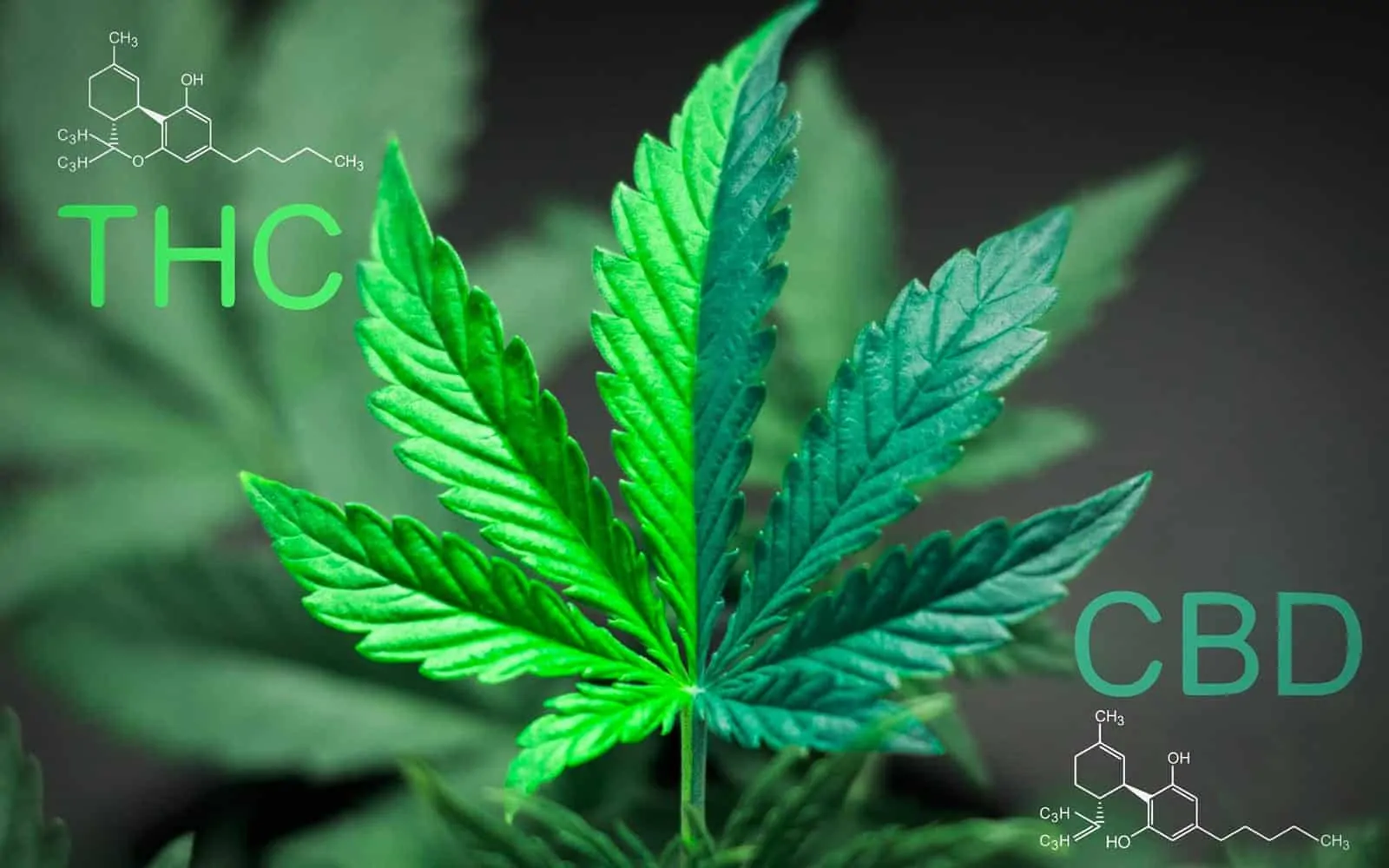
- What Is The Difference Between CBD And THC And Why Is It Important?
- Cannabidiol And THC – Who Wins?
There was a time when cannabis was something we could not talk about. Well, today, people talk about it, people want to learn everything about it, people want to know how to use it right to cope with various symptoms and disorders. Most of us heard about two main compounds of cannabis products, CBD and THC, but only experts and veteran consumers know what exactly these abbreviations mean. The good news is it is not rocket science. In fact, both of them are cannabinoids – the compounds included in cannabis. And although marijuana contains over one hundred different compounds – these two are most common. In short, cannabidiol also known as CBD is a non-psychoactive compound, while THC, also known as tetrahydrocannabinol, is psychoactive. But we are not here to make a brief presentation of these two compounds – we are here to discuss them in detail. So what’s the difference between CBD & THC? Keep reading to find the answers!
Read Also: What Are Cannabinoids, Their Types, and Effects?
What Is The Difference Between CBD And THC And Why Is It Important?
Where can these two compounds be found? Everything is pretty simple: marijuana and hemp both contain them – the only really important difference is in the concentration of THC & CBD – marijuana contains more tetrahydrocannabinol, while hemp contains more cannabidiol.
Besides, only cannabis contains cannabidiol. In fact, these compounds do not differ from each other at all, at least, if we consider only molecular structure and nothing but molecular structure. In other words, atoms of THC & CBD are exactly the same: each has the same number of hydrogen, oxygen, and carbon atoms (30, 2, 21 atoms respectively.) However, all these atoms are arranged differently. That is why our bodies are affected differently. Moreover, they are similar to endocannabinoids in the human body, and they interact with different receptors (we described this process in more detail below.)
How they are used?
Before we start to talk about effects, let us discuss how these compounds are used. In fact, there are a lot of products that include such ingredients.
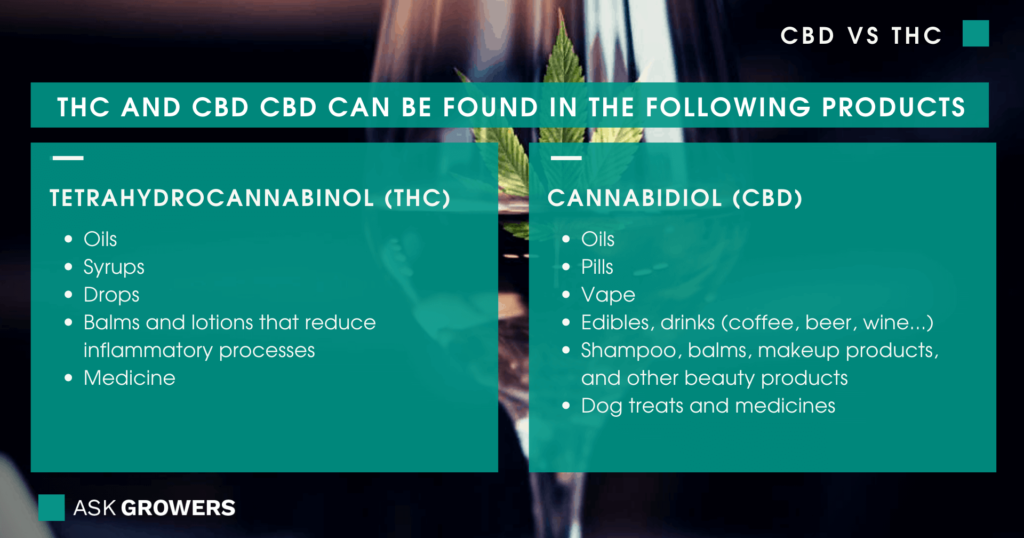
CBD can be found in the following products:
- Oils
- Pills
- Vape
- Edibles, drinks (coffee, beer, and so on and so forth)
- Shampoo, balms, makeup products, and other beauty products
- Dog treats and medicines
THC can be found in the following products:
- Oils
- Syrups
- Drops
- Balms and lotions that reduce inflammatory processes (topicals)
- Medicine.
Read Also: What Are Synthetic Cannabinoids and Synthetic Marijuana
CBD vs THC high
We all know that this aspect is important to a lot of people. Do both compounds get you high or not? In fact, this is one of the reasons why they are different. THC causes a feeling of euphoria. But what about CBD? The thing is unlike another compound of good old cannabis, it does not get you high but significantly reduces inflammatory processes.
Let us discuss these effects in more detail. In fact, there are only 2 receptors in the body that are directly affected by the compounds of this plant. They are called CB1 and CB2 and also are the compounds of the so-called endocannabinoid system (yes, it is one of the systems of our bodies) that is responsible for hormone regulation. In other words, this system influences our mood and, of course, energy.
The thing is CB2s are mostly in PNS (peripheral nervous system) and CB1s are found more in CNS. CB1s affect the brain, while CB2s affect the whole body and reduce inflammatory processes without affecting the brain, and, therefore, without making you feel high.
So, THC affects CB1. However, it does not mean that a consumer will stop breathing or that his heart will stop. Tetrahydrocannabinol causes euphoria without affecting the brain stem.
Cannabidiol affects CB2. Consequently, it has no psychoactive effects – it only reduces the inflammatory process.
We should also emphasize that everything that all of the above proves – THC does not affect CB2 and vice versa. It only means that though THC may affect CB2, as well as CBD, may affect CB1, in most cases, they still react with their “regular partners.”
Read Also: What Is Delta-8?
TOP low THC seeds
Medical benefits of THC vs CBD
Today we all know that cannabis, weed, and marijuana is not only about high. It is also about medicine. A lot of marijuana products are used to treat various medical conditions, including neuropathic pain, cancer, nausea, sclerosis, and so on and so forth. Not all of them are officially approved but still, the medical benefit of cannabis is beyond question. A lot of top researchers work hard to identify the health benefits of this unique plant, and dozens of them have already been identified.
A lot of attention is paid to CBD which, as we have already noted, is non-psychoactive yet able to treat some symptoms and disorders. In particular, it helps to cope with such serious diseases as epilepsy and such symptoms as seizures.
Even though THC has fewer medical benefits, it is still used by many consumers to relieve pain, cope with anxiety, insomnia, etc. Some researchers even consider that it helps to treat Parkinson’s and Alzheimer’s.
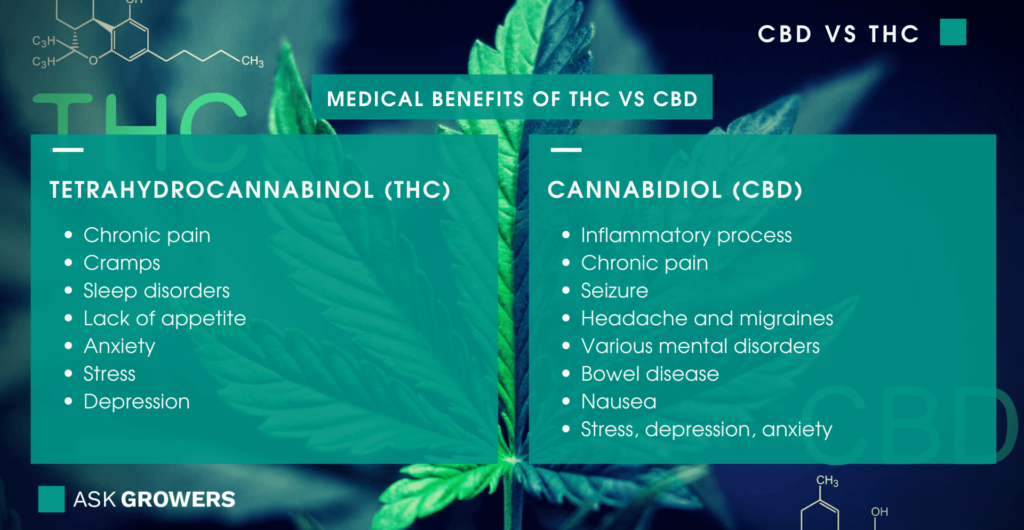
So, let us sum up the medical benefits of these two compounds.
Tetrahydrocannabinol is good for treating:
- Chronic pain
- Cramps
- Sleep disorders
- Lack of appetite
- Anxiety
- Stress
- Depression
Cannabidiol helps with such symptoms, disorders, and diseases as:
- Inflammatory process
- Chronic pain
- Seizure
- Headache and migraines
- Various mental disorders
- Bowel disease
- Nausea
- Stress, depression, anxiety
Read Also: What You Need to Know About the New Tetrahydrocannabinol Delta-10
Finest cannabis seeds with high THC
Can they cooperate?
So here is the battle called “THC vs. CBD molecule.” They are similar and different at the same time, and people used to compare them. But what if say that can they work together, too? Of course, the effects of cannabis depend on a hybrid a consumer chooses, but still, according to the latest researches, consumers feel less anxious when they choose products that consume products with both these compounds that when they pick products that contain only tetrahydrocannabinol.
Moreover, according to the results of empirical researches respondents who consumed CBD and then THC were less anxious than people who consumed only THC. Of course, there are cannabis products and hybrid that contain a big percentage of THC and do not make consumers feel anxious, but in most cases, CBD helps the body cope with some THC side effects.
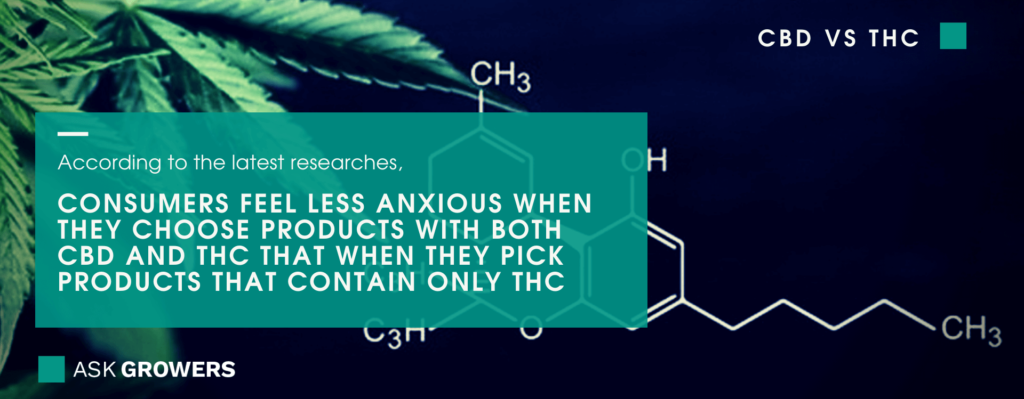
In other words, the effects of CBD and THC when they are together are different from the effects of each of these compounds. However, consumers should also consider the fact that the presence of cannabidiol makes a consumer less high.
Nevertheless, experts note that they still do not know a lot about this unique plant. The effect of cannabis, its compounds, the way they affect various receptors (there are over 60 receptors that can interact with them!), all these things are left to explore.
Read Also: CBC Cannabinoid (Cannabichromene): Benefits, Effects, Legal Status
What about the effects & side effects?
Another important thing to consider is the difference between these compounds’ effects. Yes, they are also different.
As we have already noted, cannabidiol does not cause euphoria, but this is not the only thing you need to know about it. CBD can make you feel more excited, bring you the feeling of serenity and perfection, of course, if a grower makes every effort to make the top-quality product. Only in this case, CBD will not have any intoxicating effects.
THC, in turn, can bring you the feeling of euphoria, make you feel more creative, happy, and relaxed, and that is why it is often consumed by people who are trying to cope with depression, pressure, stress, and anxiety.
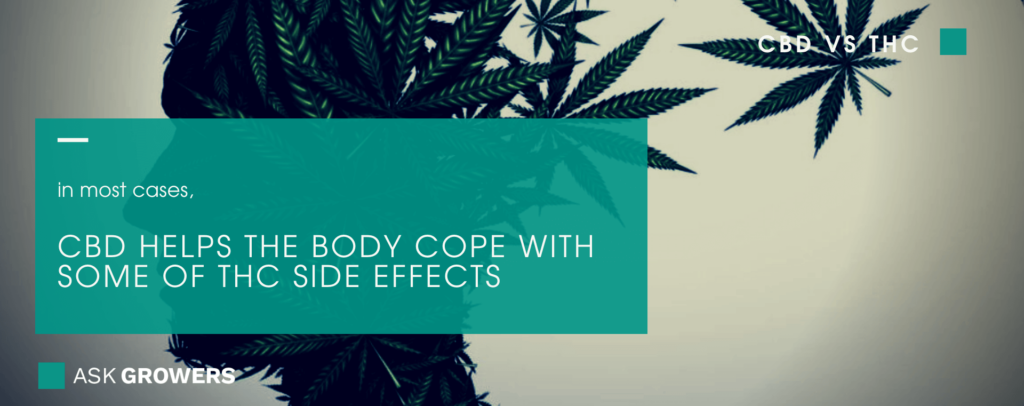
But what about side effects?
Though cannabidiol is considered to be a “safer” cannabinoid just because people usually tolerate it even if they consume pretty large dozes, it still has some side effects. However, these effects are usually the results of mixing the drugs, i.e., when someone consumes cannabis and another drug, medication at the same time.
So what problems a consumer can face when taking CBD products?
- Red eyes
- Rapid heart rate
- Movement disorders
- Dry mouth
- Diarrhea
- Slow reaction
- Low blood pressure
- Short-term memory loss
As you can see, though consuming products with cannabidiol may cause some side effects, not all of them are really dangerous. Nevertheless, you should not consume cannabis and other drugs at the same time – all bodies react to cannabis differently.
THC is considered to be a more “dangerous” cannabinoid. Tetrahydrocannabinol can cause:
- Concentration problems
- Anxiety
- Dizziness
- Short-term memory loss
- Sleepiness
- Nausea
Please note that in most cases these effects are the results of overdose.
Read Also: What Is THC-O and Why Is This Psychedelic Cannabinoid Three Times Stronger Than THC?
The compounds in the eyes of the law
There is no secret that a lot of people have doubts about both these compounds and cannabis at large because the questions about their legality remain open. Moreover, is much debated on all levels.
Two years ago, DEA classified it as a drug that has no accepted medical use. Moreover, the administration has noted that both of these compounds have a huge potential for possible abuse.
Nevertheless, despite the fact that experts had different views on this issue, most researchers claimed that the compounds’, in particular, CBD’s medical benefits are a good reason to make it legal.
CBD hemp oil is supposed to be legal in America, but in fact, it depends on the state laws. Medical marijuana, however, is legal in over 30 states, but still, it is not so easy to buy something that contains good old THC.
In other words, you need to look through your state laws wherever you are, in Washington or California. You cannot be too careful when it comes to state laws and good old cannabis, even this is just a medication.
Cannabidiol And THC – Who Wins?
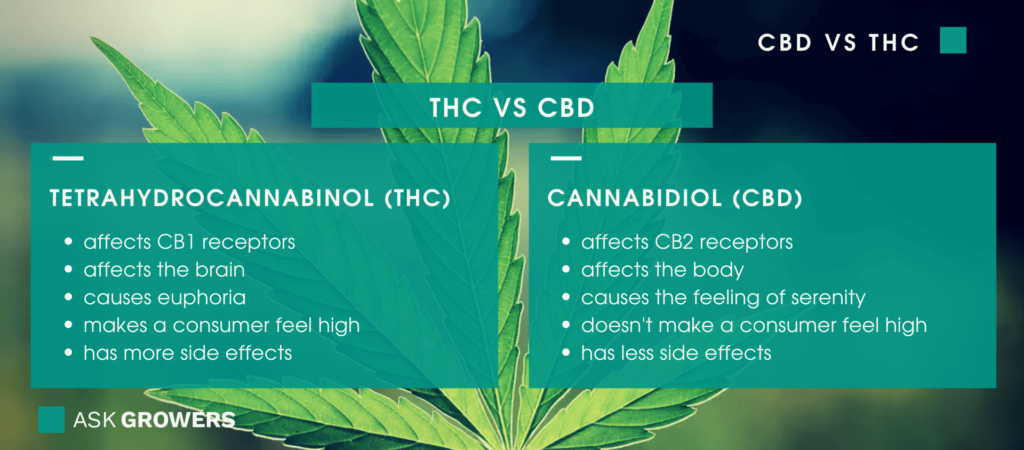
Though we ask “Who wins?”, it is not a competition. THC & CBD are just two different compounds that alike and at the same time, completely different.
Firstly, we would like to emphasize that they affect different acceptors. As we have already noted, cannabidiol affects CB2s that, in turn, affect the body, while tetrahydrocannabinol affects CB1s or just brain, and that, in turn, causes euphoria. It means that CBD cannot make a consumer feel euphoric or become high, but it causes the feeling of serenity and helps treat various symptoms and diseases, from acne to schizophrenia.
THC, however, also has something to offer to a consumer. In particular, it makes a consumer feel high. Whatever skeptics say, this is not the only reason why people consume it. It also treats stress, anxiety, depression, insomnia. It has more side effects, but still – in some cases, it is really helpful.
It may seem that this makes them completely different, but it doesn’t. In particular, they can influence other compound’s “partner”, for example, THC may affect CB2 and vice versa. Moreover, they often cooperate – it is considered that cannabidiol may reduce the side effects of THC.

 Education
Education
 CBD
CBD
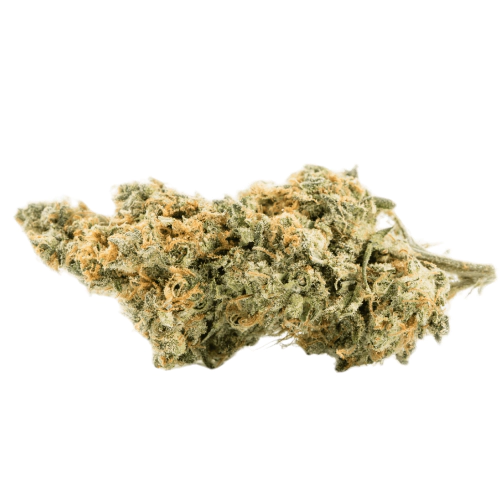
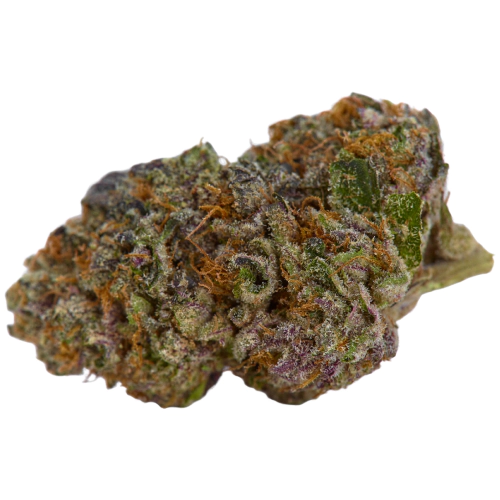
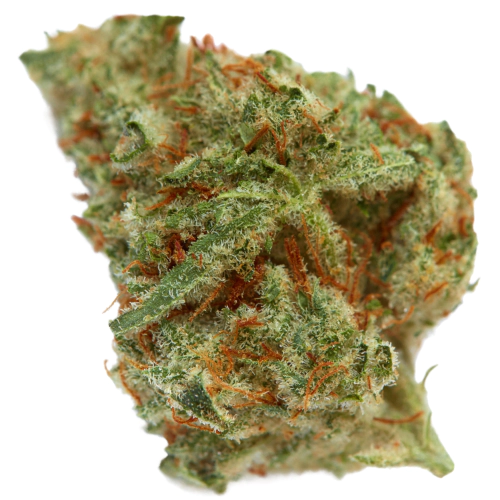
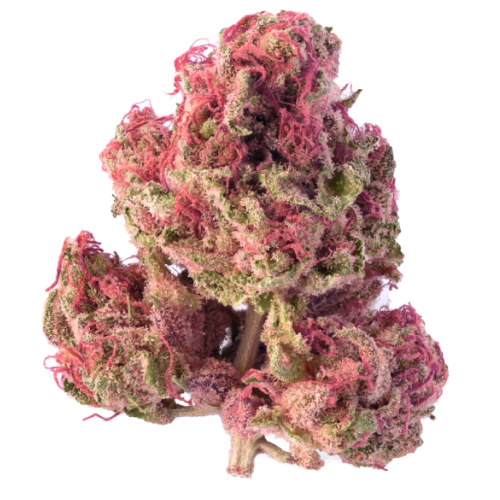
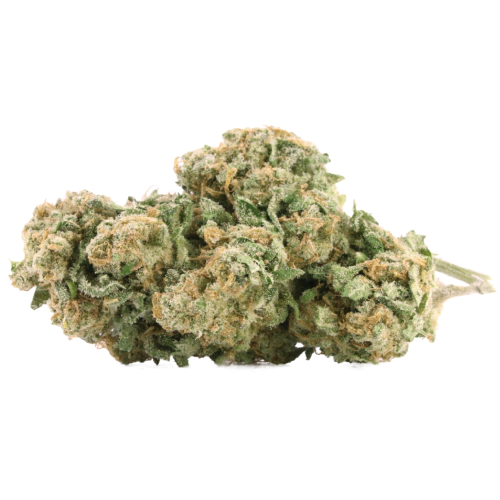
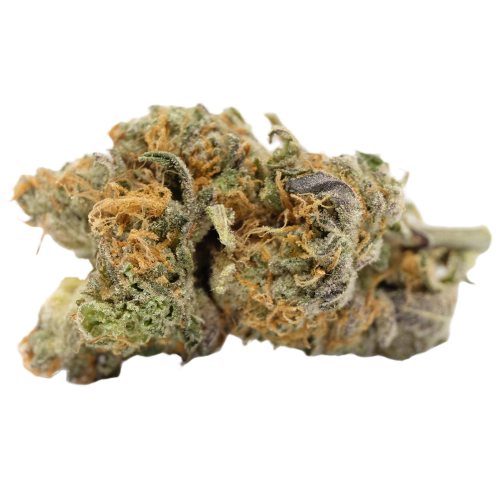
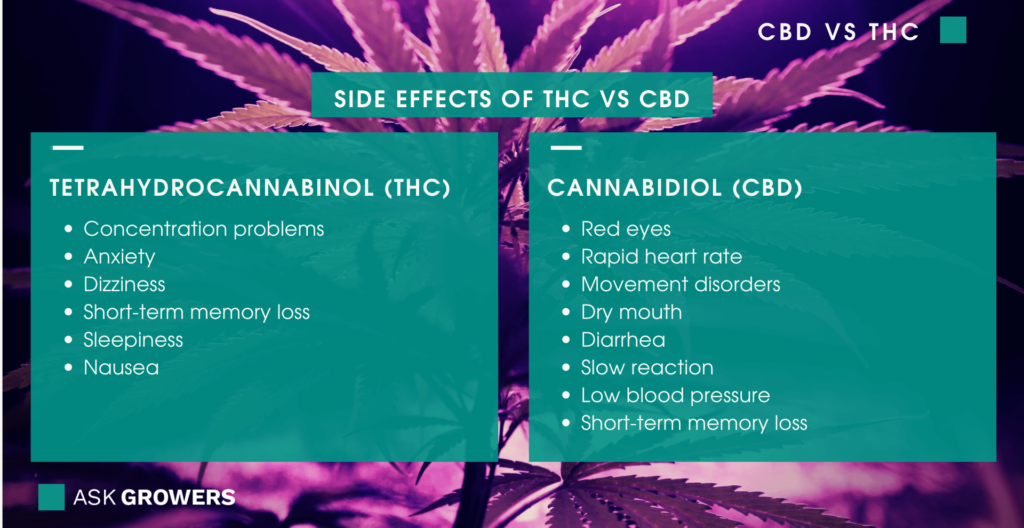
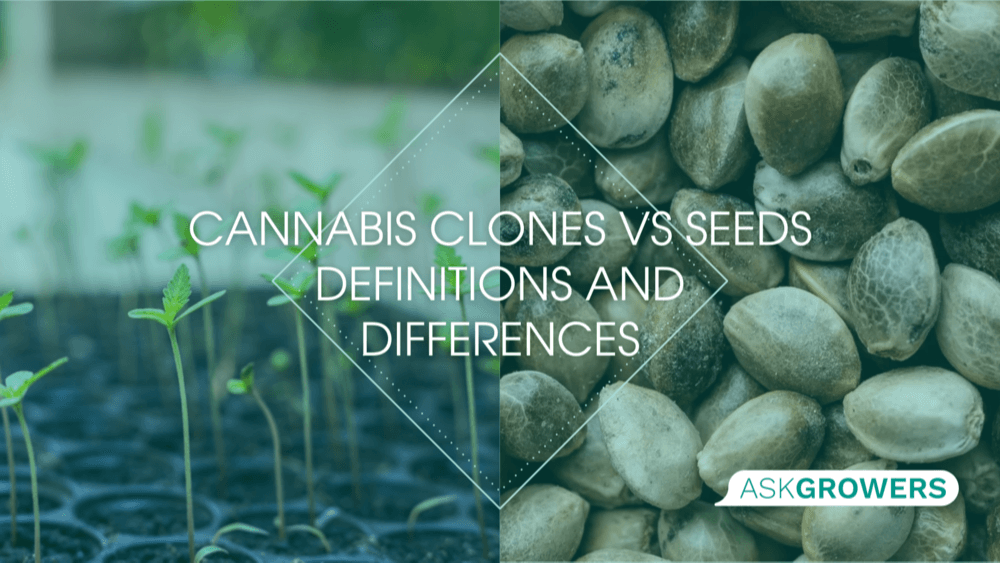
.png)

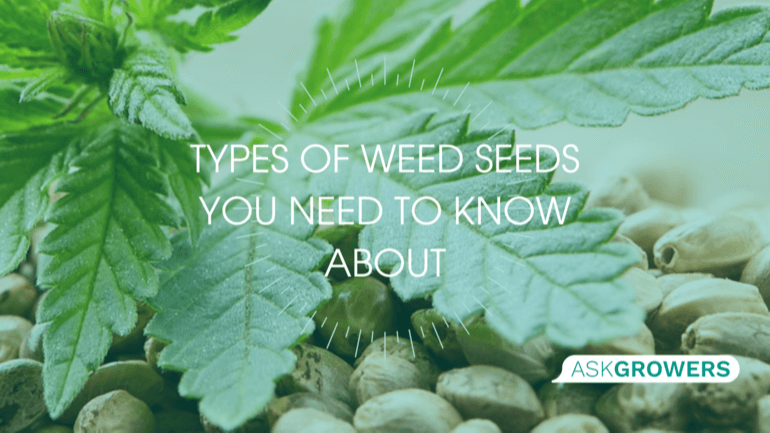
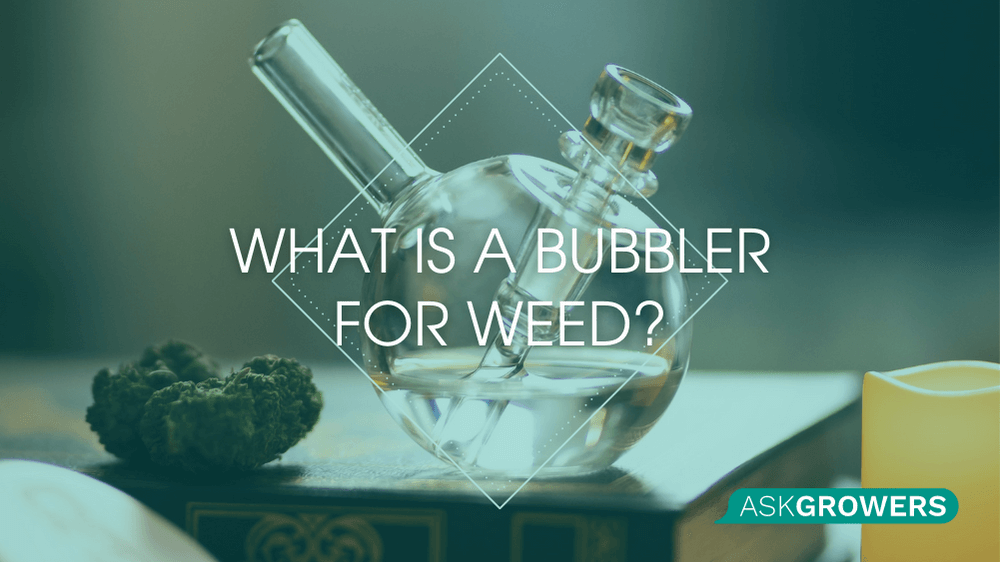
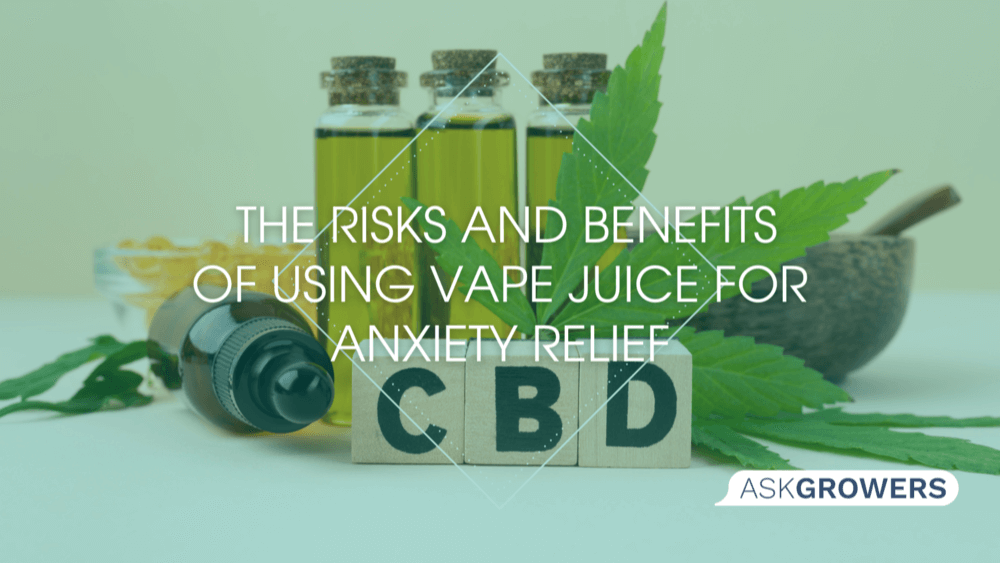
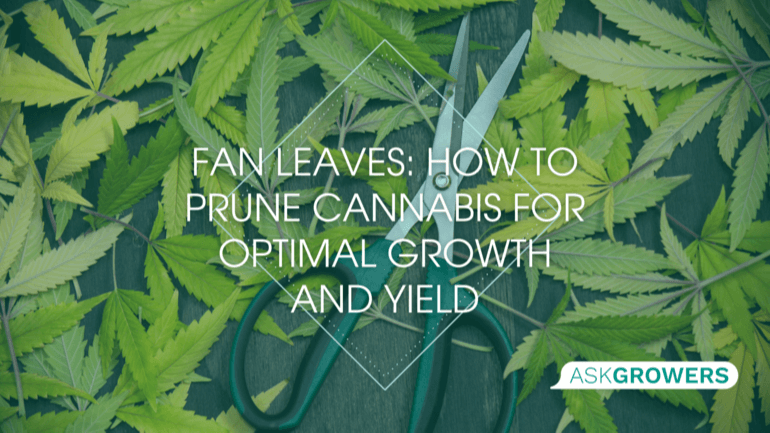
 (1).png)
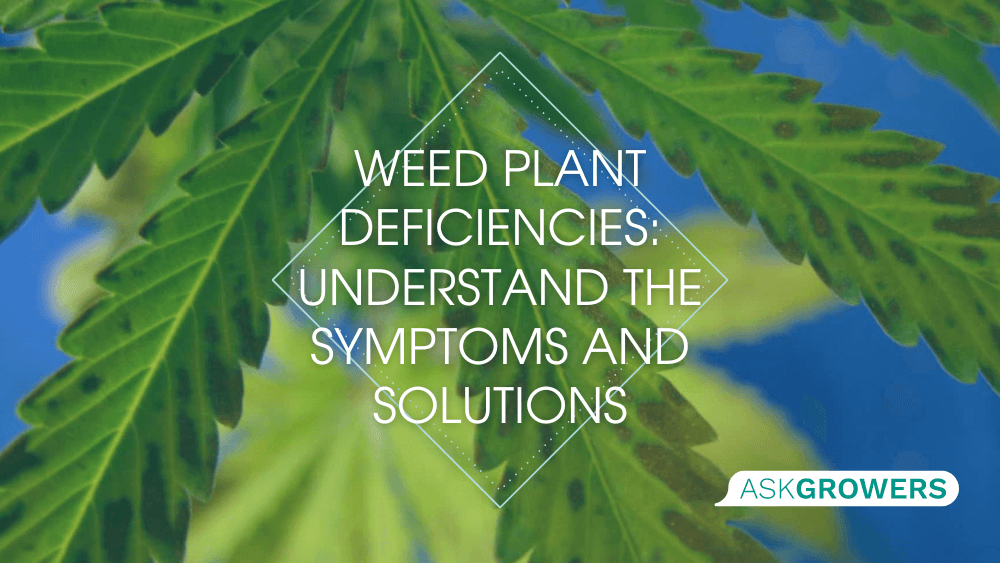
.jpg)

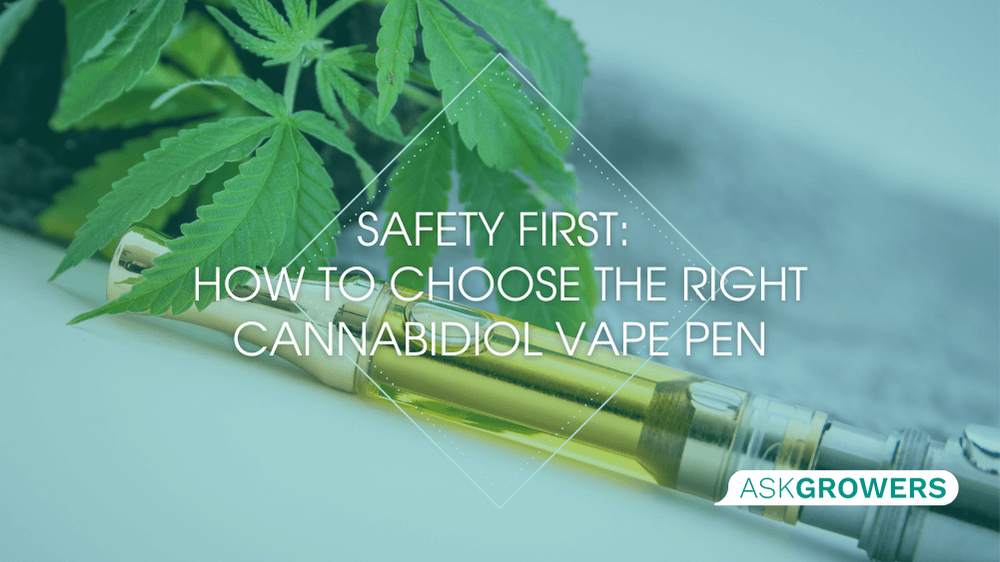
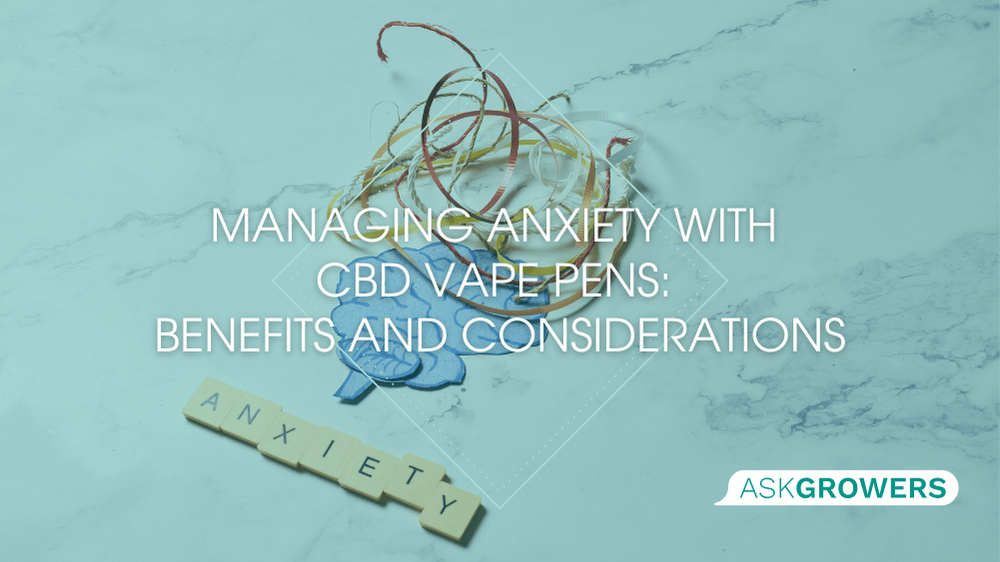
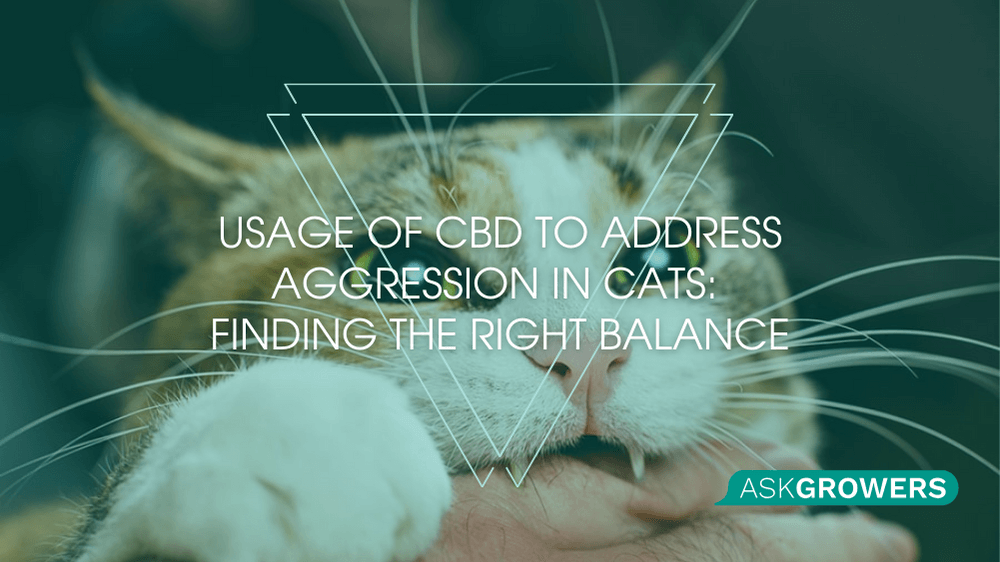
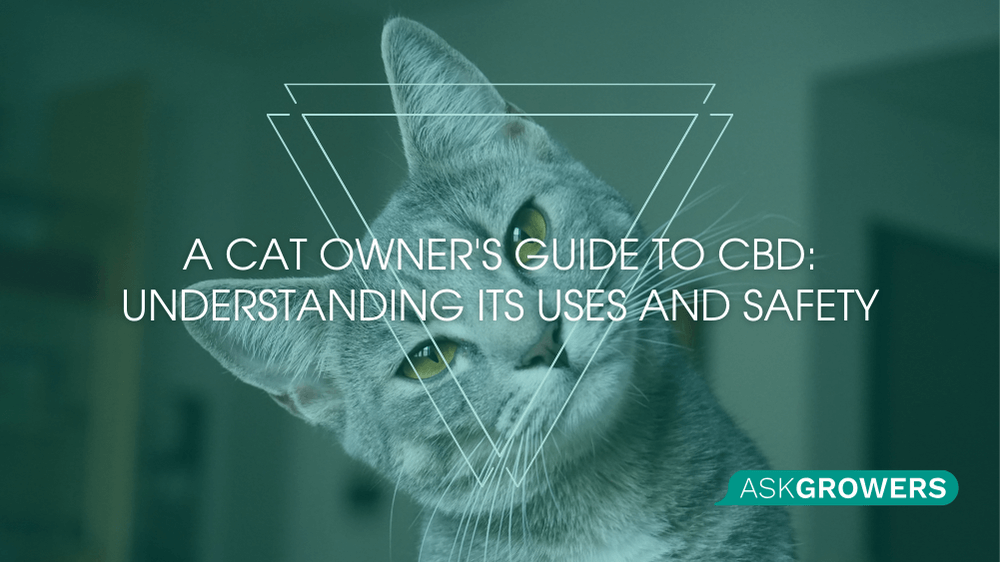
Be the first and share your opinion
Write a Review